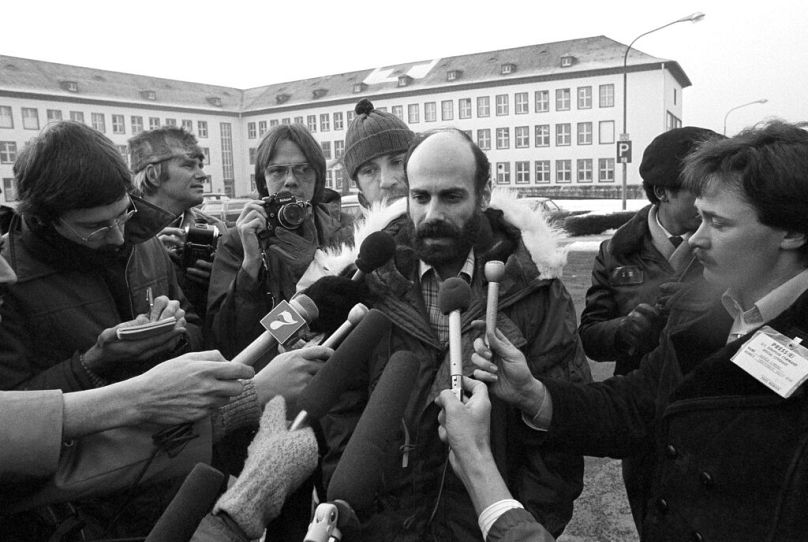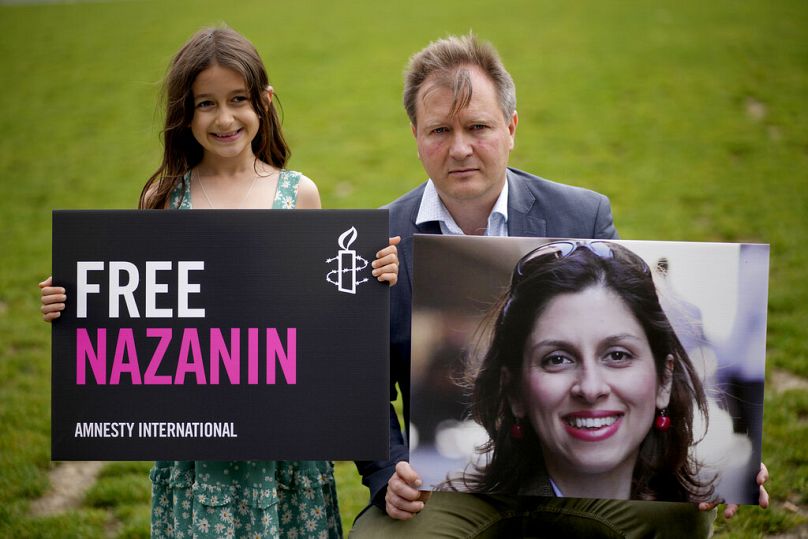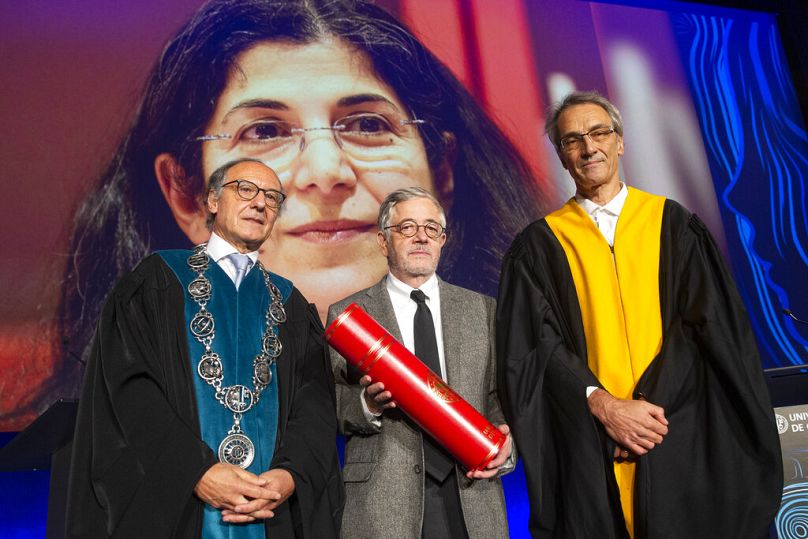Europe must present a united front against the Islamic Republic of Iran's decades-long practice of jailing foreign and dual nationals for leverage, writes former hostage Barry Rosen, who begins a hunger strike in Vienna today
Barry Rosen, 77, was one of the US embassy staff detained in Tehran for 444 days by the Iranian regime in 1979. On Wednesday, January 19 he will commence a hunger strike calling for the release of foreign and dual nationals being held hostage by the Iranian regime, as a core element of the ongoing nuclear negotiations in Vienna.
In the midst of another round of nuclear talks, aimed at halting Iran’s illegal nuclear agenda, one element of the regime’s callous nature has been routinely forgotten: hostage diplomacy.
Since the fall of the Shah in 1979, the Islamic Republic of Iran has enthusiastically adopted a state-sanctioned practice of imprisoning foreign nationals and dual citizens to create diplomatic pressure points.
I myself was imprisoned for 444 days during the US embassy hostage crisis, so I understand more than most the cruelty the regime can inflict on innocent people whose only crime was to offer a convenient target.
Abuse of dual nationals for political gain
Iran’s callous custom of hostage diplomacy was once again thrust into the spotlight last December thanks to the unrelenting protests of Richard Ratcliffe, the husband of detained British-Iranian dual citizen Nazanin Zaghari-Ratcliffe, who has been held captive by the regime since 2016.
Nazanin is not the first dual national to be imprisoned by the Islamic Republic, nor will she be the last. Numerous foreign nationals and dual citizens have been imprisoned since the regime’s inception, beginning with the crisis of 1979.
Many Europeans are still behind bars in Iran, several in the notorious Evin prison, including British-Iranians Anoosheh Ashoori and Sharam Shirkani, Swedish-Iranian professor Ahmad Reza Djalali, and Austrian-Iranian Massud Mossaheb, to name a few.
At least 15 dual nationals are confirmed to be imprisoned in Iran on false, baseless charges. They are routinely denied proper legal counsel, with no access to medical assistance. Torture and cruel interrogation practices are routine, including sensory deprivation, sleep deprivation, solitary confinement, prolonged handcuffing and blindfolding, as well as intense psychological torture.
Sadly, these detained dual nationals appear to have been largely forgotten by their home countries, despite their families’ tireless campaigns to secure them consular assistance and legal representation. The detainees themselves are unable to seek consular assistance as Tehran claims to not recognise dual citizenship.
A calculated approach
Dual nationals are targeted precisely because their secondary home nations can be relied upon to engage in negotiations for their release, allowing Tehran to present demands.
These abusive practices are gratuitous. The regime knows full well that the charges placed before these individuals are a concoction of lies and fantasy. Iran’s leadership sees these prisoners through the cold lens of geo-political and diplomatic strategy.
Nazanin and others are viewed as bargaining chips for the regime: a trump card to play when it needs to negotiate with ‘enemies’.
Just last week, as the nuclear talks continued, British council worker Aras Amiri was released by the regime, while French-Iranian professor Fariba Adelkhan was re-imprisoned. This calculated approach from Tehran highlights the government’s disregard for human liberties and willingness to incarcerate those it sees as useful, on a mere whim.
Europe must present a united front
The Iranian government’s use of hostage diplomacy cannot be dealt with through the actions of any one country. Every time a Western country accedes to Tehran’s demands, it simply emboldens the regime to continue – or ramp up – the practice in the future.
Instead, the international community must join together to finally put an end to this abominable practice. The resumption of talks on reviving the Joint Comprehensive Plan of Action (JCPOA) presents an opportunity to do just this.
Last month witnessed the return of Western and Iranian officials to the negotiating table after years of stalled discussion and escalating tensions. The revival of these necessary talks has been a prime focus of media coverage in recent weeks.
However, both Western officials and the international media appear to have forgotten the plight of dual citizens held hostage by Tehran.
That is why I am beginning a hunger strike on January 19, outside at the Palais Coburg hotel in Vienna, where the nuclear negotiations will be taking place. Hostage diplomacy must be a pivotal part of these talks and I am aiming to raise awareness about the dire conditions the unjustly held prisoners are facing.
Europe is in danger of missing the opportunity presented by the nuclear talks to address the horrendous practice of hostage diplomacy, and the traumatised individuals and their families who suffer from it.
It is time for Europe to lead the way, and for the international community to stand up to the Islamic Republic. Without comprehensive and effective action, the Iranian regime will have little incentive to stop this cruel practice, and will continue to disavow international norms.
Barry Rosen has been an advocate for the needs of hostages and their families since his release from Tehran nearly four decades ago. He is a founding member of Hostage Aid Worldwide and a Senior Advisor for United Against Nuclear Iran (UANI).














